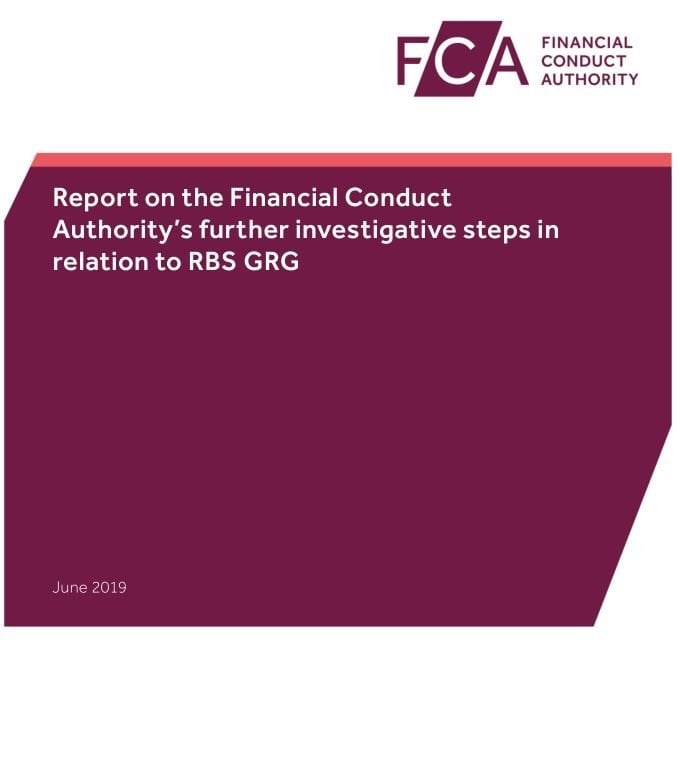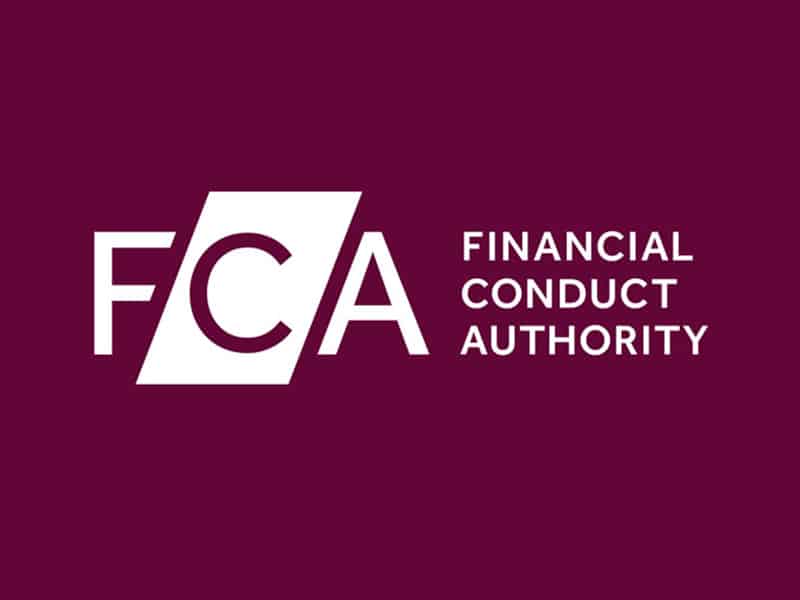The Financial Conduct Authority has today published its’ final report into the misconduct of the Royal Bank of Scotland‘s GRG unit. The report purports to explain the FCA’s reasoning behind its decision in July 2018 not to take action against the bank’s senior managers, despite the FCA- commissioned Promontory final, unredacted section 166 report on 16 February 2018 finding that “there was widespread inappropriate treatment of customers by GRG”.
The upshot of the FCA’s report is that although GRG “fell short” of standards expected by its clients and even in cases where the mistreatment of customers has been identified and accepted, the regulatory body’s powers are very limited given that at the time, the rogue unit was purportedly unregulated.
Download the FCA’s final report on GRG

Key findings of the FCA’s final report
GRG’s activities were largely unregulated
The FCA have claimed that its’ role as the financial services watchdog does not apply to the commercial lending to RBS’s GRG customers as it was largely unregulated. Therefore, even where misconduct is clear and apparent (the first s.166 report confirms that misconduct was prevalent and this report concludes that the relationship between GRG and West Register was inappropriate), the FCA do not have the parliamentary mandate to take action against RBS or its’ senior management.
Therefore, in effect, the FCA’s role is limited to investigation but not enforcement. This leaves victims of GRG’s rogue unit in a regulatory black hole and means that the FCA have not been able to hold senior mangement at GRG to account, or levy financial penalties on RBS, despite the loss suffered by its’ victims.
Evidence of serious and widespread malpractice at GRG
The report re-affirms that the FCA found multiple instances of GRG not treating customers fairly, for example by:
- failing to comply with RBS’s own policy for communicating with customers about their transfer to GRG;
- failing to support SME businesses in a way that was consistent with good turnaround practice;
- focusing too much on increasing prices and reducing debt without properly considering the impact of this on the longer-term viability of customers’ businesses;
- failing to document or explain the rationale behind pricing decisions for customers after they were transferred to GRG;
- failing to ensure staff made appropriate and robust valuations, and carrying out internal valuations based on insufficient or inadequate work, especially where GRG based significant decisions on these valuations; and
- failing to handle the conflicts of interest in the West Register model and operation.
Regulatory history of investigating GRG’s misconduct
In November 2016, RBS admitted it had failed SME customers and established a complaints process fund of £400million to refund complex fees paid by SME customers between 2008 and 2013 to be overseen by an Independent Third Party.
In November 2017, the FCA published a heavily redacted Promontory summary report into GRG mistreatment of customers.
In January 2018, Parliament condemned GRG’s parasitic treatment of SMEs, documented by LEXLAW here. LEXLAW (through a campaign of DPA Subject Access Requests), SME victims, the APPG, Treasury Select Committee and Parliament called for the publication of the skilled persons report into GRG’s mistreatment of small business customers.
The Treasury Select Committee published the final, unredacted section 166 report on 16 February 2018. The report estimated that one in six SMEs had been damaged by the actions of GRG and the FCA’s conclusion was “there was widespread inappropriate treatment of customers by GRG”.
However despite the litany of evidence against GRG, in July 2018, the FCA stated that no action would be taken by the regulatory body against either RBS or its’ senior mangers over GRG’s widespread misconduct. The FCA claimed that its regulatory powers were limited given that GRG was largely an unregulated body.
The report published today purports to expand on the reasons why the FCA have decided not to pursue the senior managers at RBS.
How do you protect legal rights from expiring against RBS GRG?
It is an absolute must that victims of RBS GRG or other bank BSUs protect their legal rights. Businesses that were affected must urgently take legal advice on their specific cases. If you fail to do so your legal rights will become time-barred by virtue of the Limitation Act 1980, resulting in the complete loss of your legal right to compensation via the courts. If no adequate redress is achieved through the GRG complaints process for direct loss and/or consequential loss and your claim becomes time barred, your legal rights will expire.
Legal rights can be protected by taking urgent legal advice and by instructing specialist GRG solicitors to issue a protective claim form or by instructing GRG litigation solicitors to prepare and agree a carefully written standstill agreement.
LEXLAW: City of London Specialist GRG Litigation Lawyers
We are the leading law firm with the skill and experience to act for businesses seeking to resolve wrongdoing by bank recovery departments often titled ‘business support’, ‘restructuring’ or ‘turnaround’ departments. We are aware that some major banks have regularly engineered defaults and created and profited from distress, often caused by other departments of the bank including via wrongdoing such as LIBOR manipulation, deliberate concealment of credit utilisation and mis-sold derivatives.
In recent years, we have litigated and settled more banking disputes for UK SMEs in the High Court in England & Wales than all other law firms in the UK combined. We provide strong legal representation and use our banking and financial services litigation expertise to ensure we obtain the best possible results which means optimal compensation for our clients.
Our GRG litigation lawyers pursue every avenue to ensure compensation for ex-GRG customers including the GRG complaints process, claims to the FOS and litigation in the courts.
Our lawyers are regularly interviewed by journalists and broadcasters and featured in international and UK print and television media commenting on bank litigation and insolvency (see our Media Appearances section).
Book an Initial Consultation with our GRG Litigation Solicitors
If your business has been mis-treated by RBS’s Global Restructuring Group and are entitled to obtain redress compensation or are considering a legal claim, get in touch so we can assess the legal merit of your case.
Our expert legal team of leading GRG complaints Solicitors and Barristers can provide urgent help, advice or representation to you. Just call us on 02071830529 or email us now.
Financial Services Litigation Team, LEXLAW
